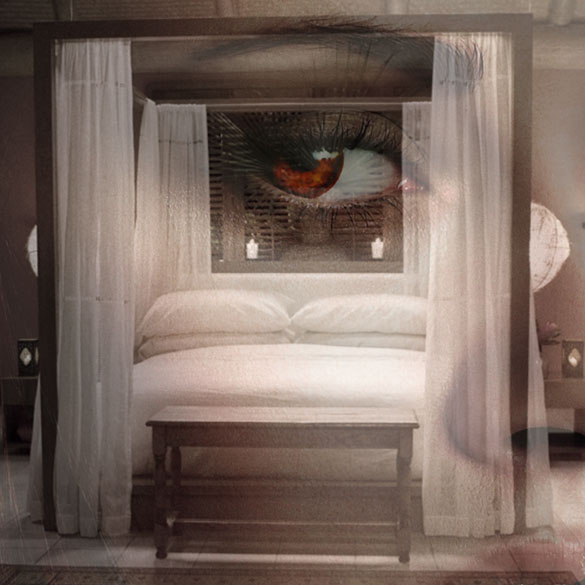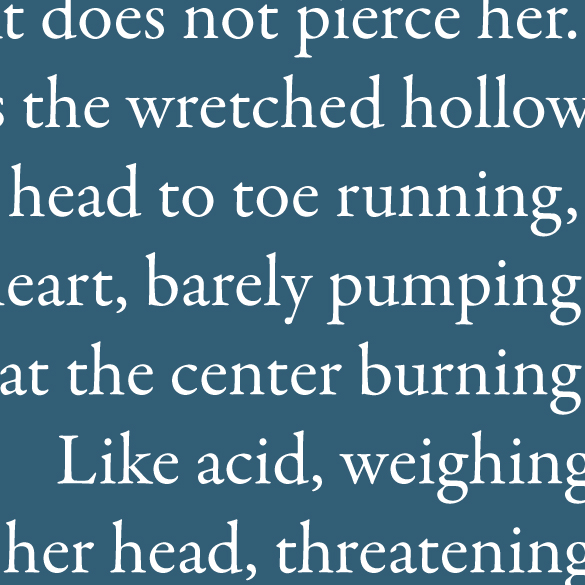I prefer funerals to weddings.
It’s not because I prefer sad tears to happy ones, or black dresses to white, or death to love. It’s not because of the things the events represent; it’s because, as occasions, funerals seem to have greater potential as expressions of personal feeling.
I worked for years as a church custodian, and I always liked working funerals better than weddings. For one thing, they are usually shorter. But the expectations are lower as well, and so there’s less room for megalomaniacal drama. No one thinks that their Uncle Mike’s funeral is going to make for the most perfect, most magical, most romantic and blissful day of her life. And so, when trivial things go wrong with a funeral — misplaced flowers, mis-printed programs, a late pianist — people generally realize that they will seem petty and foolish if they corner the sexton and yell at him about it. Weddings, in contrast, escalate expectations and do not invite such restraint.
I’ve had a bride’s mother shout at me — not because it was my fault, or even my job, but just because I was there — when the wedding candles were the wrong color. Cream rather than ecru. Or was that the other way around?
From my experience, if anyone is going to go berserk on the wedding day, it is usually the bride’s mother — though I have no idea why that would be. After the fifth or sixth tantrum, I grew very adept at controlling the damage, partly through shame. I would listen and nod sympathetically, then carefully touch her shoulder and say, “I’m really sorry that this is not what you wanted. But it is not so important as to ruin your daughter’s wedding.” The implication, of course, is that while the problem itself may be inconsequential, your overreaction could prove catastrophic. No one will remember whether the wine was opened too early, but a ranting mother/mother-in-law is surely the one thing no one will forget. If I could manage to point that out, without actually saying it, I could usually calm things down.But I never had to pull tricks like that at a funeral. And the reasons why are interesting.
Funeral’s give us, however momentarily, some larger perspective. No matter how dearly you loved the recently departed, it is very hard to get worked up over the color of the candles, or to grow enraged over a flower arrangement that topples to the ground. In fact, the more you loved him, the less likely you are to care — or even to notice. In the face of unbearable loss it is hard to take such stuff very seriously. It just doesn’t matter. We realize, at least in the moment, that the fantasy of “a perfect ceremony” is not really what we care about. That people don’t realize that at weddings might give you a little sideways glance as to how seriously they take that as well.
Details matter in a wedding, in part because endless amounts of time go into selecting them. Hours are spent agonizing over the exact color of the napkins, the cut of the paper for the program, the music, the dresses, who stands where — and on and on. Each of those tiny decisions demands attention and as we grant it our attention it seems to grow in significance. The more we obsess, the more important the details become until these trivialities start to seem like the point of the ceremony. Besides which, every decision costs money, accumulating quickly to thousands upon thousands for dollars. Mistakes, then, represent a waste — wasted time, wasted money, wasted effort, wasted thought. I went through all the trouble to form these preferences, the psychology seems to run, I may not have cared before, but I am damn sure going to get my way now.
Funerals are another matter. For a funeral, too, one can pay a lot of attention to very small details, but one’s decisions are generally not arbitrary consumer choices. They are more deliberate. They are driven by, and their weight depends on, the personality of the deceased. The choice of music, of speakers, of aesthetic, of tone all have more force, more meaning, and more relevance in a funeral — and yet, precisely because the preferences are stronger, there tend to be fewer of them. There is a small range of concerns that are genuinely important; everything else seems, perhaps rightly, irrelevant.
One of the paradoxes of weddings is — despite the terrifying array of options one must consider — the events themselves generally turn out more or less the same. In fact, they ought to. Those who try to strike out in their own direction usually just end up with something corny and embarrassing. Stray too far and the event won’t even be recognizable as a wedding any more. It becomes, instead, something like an over-structured party colored by vaguely ceremonial pretensions.
Which brings us to the central reason I prefer funerals over weddings. Funerals are endlessly variable, because the funeral really is about the person who died. It is not for her, in any meaningful way; it is for the friends and family she has left behind. But that person — the dead one — is at the center; she, individually, is who we miss. Her life, and no one else’s, is what we celebrate and mourn.
Weddings, judging from the perspective of an outside observer, generally seem pretty miserable for the couple. They’re under a lot of stress, under a lot of scrutiny, demands are made of them all day long — not least, the demand that they seem deliriously happy — and they barely have a moment to themselves in the midst of a ceremony that is supposed to be fusing them together. That’s because the wedding, unlike the funeral, is not really about the people. It’s about the event, the ceremony, the institution, the tradition. It’s about the family and the community, the parents and the preacher, the law and God, the vows and the cake. Weddings are about weddings, and secondly about marriage, and only possibly about love. It is rather exceptional, in the course of the event, for the unique love that two particular people feel for each other to ever be apparent.
Funerals are, in that sense, the opposite of weddings. They do have their ceremonial value — the closure, the goodbyes, the “ashes to ashes.” But it is just not possible to forget about the particular life that has been lost, the specific person who is now forever absent. You can have a by-the-numbers funeral, if you choose to do so, and the worst people will say is that it was boring and short. But funerals can also be endlessly personalized. They can be sorrowful, meditative, philosophical, silly, pious, blasphemous, and even fun. The personalization of a funeral often adds depth, and can make the event touching, and sometimes comforting.
In this regard, one funeral in particular stands out in my memory. It was near the end of my time working for the church. The memorial was not for anyone I knew, but it was a beautiful event, and it left me wishing that I had know the woman who had died. I felt as though the world were poorer for her passing. I saw how many people loved her, and how deeply, and the closeness they shared made me feel, not like an outsider, but briefly connected to everyone there. One after another, they told good stories about their dead sister, daughter, friend — and no one tried to pretend that she was better than she was. They joked and they teased her, even in death. And they sang silly, touching songs as a reminder of how happy she was, how she had loved the life she led. I was moved almost to tears watching that sanctuary full of people sing “The Rainbow Connection.” It was sad, and sweet, and somehow hopeful. In its sweet, playful way, the selection of the song told me something about the dead woman, and her friends, and how they loved her.
I have never seen a wedding that could compare.
—
Kristian Williams is the author, most recently, of Hurt: Notes on Torture in a Modern Democracy. He is presently at work on a book about Oscar Wilde and Anarchism.




This is exactly what I’ve been trying to explain to people my entire life. Thank you for putting it into words <3.